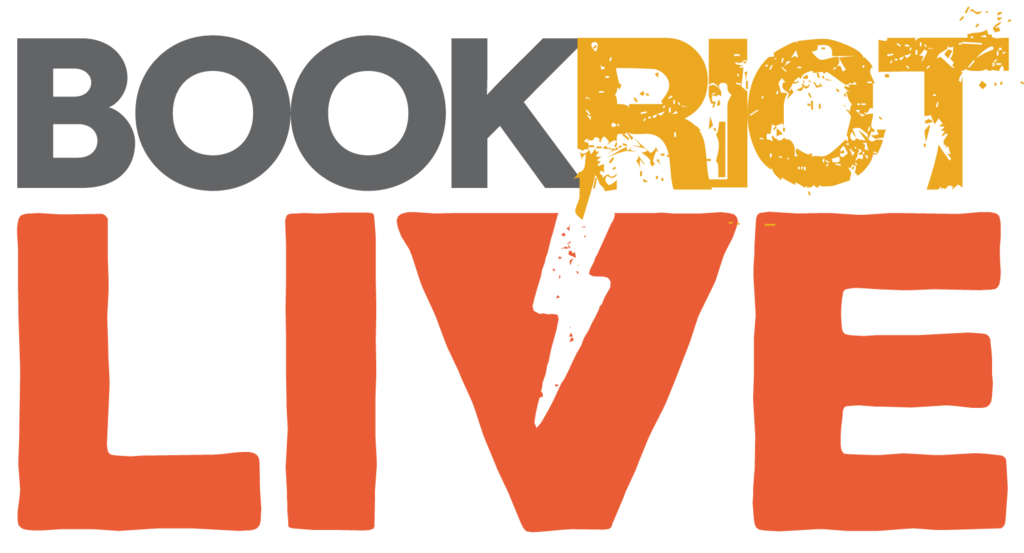
Libraries Are Not a “Netflix” for Books
If there’s one phrase I dislike more than the latest company touting itself as the “Netflix for books,” it’s when the retort is that such a thing already exists and it’s called the library.
The library is not a Netflix for books.
While there are plenty of reasons a company would want to step in and create something as successful as Netflix but for books, the comparison made to how libraries already fulfill this role is a false one at best. It’s a reductive and problematic comparison.
Netflix is a company. Its profit-based goals serve subscribers who pay a monthly fee for different levels of product: they can borrow streaming-only content or a varying number of DVDs in addition to streaming content. Private citizens pay private cash in order to access the goods. It’s not equitable and it’s not meant to be. Some people can afford to spend money on a new Ferrari while others can only afford to purchase a 10-year-old car and still others can’t pay for a car at all, so they have to walk or rely on various forms of public transportation to get them where they’re going.
Libraries — at least public libraries in the U.S. and Canada — are not private companies. Their goals are not on profit and not built upon those who can afford to pay for the services. Rather, public libraries are one of the few institutions where any and all citizens, regardless of their income or abilities to pay, may receive equitable access and service. It doesn’t matter whether you park a Ferrari or a used car in the library parking lot or you walk or take public transit to the library. When you walk in that door, you are treated equally and you are able to do and access the same things as everyone else (minor restrictions apply based on individual libraries, but those are special cases and not the norm).
It is not the goal of the library to make money. Nor is it the goal of the library to create levels of service so that those who can afford to indulge will receive more while those who can’t, don’t. Instead, libraries work to ensure their services reach as many facets of their community as possible. Libraries want to offer what they can to those who have nothing and those who maybe have everything.
The library is the center and the heart of community.
Through shared resources, through providing a safe space, and through seeking out opportunities to reach into those places which have otherwise been overlooked or forgotten about, libraries do a hell of a lot more than provide books. They do a hell of a lot more than provide movies or computers or a quiet space to read. They offer classes on building resumes, on learning how to create webpages, on cooking or gardening or eating right. They offer story times to children and programming to teenagers who may otherwise not know where to spend an afternoon when the school bell rings. Librarians get out of the building and go to school rooms to talk about books and to teach people how to use their research-aiding databases. Libraries provide homebound service to people within the community who can’t get out of their homes and don’t have someone who can get things for them; the library comes to them. For no additional fee.
Libraries are out in the community making connections and listening to what it is the people they serve are looking for. Do they want babysitting courses for their teenager? Are they looking for some kind of computer basics for senior citizens? A space where local artists can display their work for others to enjoy? Librarians go to parades, to farmer’s markets, to local grocery and big box stores to issue cards to those who may otherwise be unable to stop in conveniently and get one. They’re there to remind people their doors are always open, that anyone is welcome to come in and enjoy what their shared tax dollars have already paid for.
One of the things people love about Netflix is how well it’s able to offer recommendations for what to watch next. Netflix compiles and tabulates data on their subscribers’ viewing habits to create an algorithm of recommendations and genre-based user preferences. It works like Google in that data creates a scheme for offering suggestions of next films to watch — your individual preferences are sorted and boxed and repackaged for you and thousands of other views like you. For those hoping to find a Netflix for books, this is appealing: how great would it be to get book suggestions based on what it is you’ve liked in the past? Isn’t “discoverability” one of the things many believe is why some books don’t reach the audiences they should?
Libraries do this.
Did you know you can walk into a public library and ask for book recommendations? Maybe you’ve seen a print list here or there or you’ve seen that your library has a complicated-looking database that’s supposed to help you find your next book. But librarians — those who work at a reference or reader’s advisory or help desk — are trained to help people find their next books. This is the bread-and-butter of libraries: meeting with patrons, talking with them, and matching them up with what it is they’re looking for, be it a novel about females traveling in space or children’s book that could only be remembered by an obscure element of a cover once seen twenty years ago.
Rather than look at data and offer some suggestions, librarians know how to ask questions to you, the reader, in order to pair you with the exact right next reads. They can ask not just what you’ve liked or didn’t like in the past. They can ask you what you’re in the mood for right now. They can ask you whether you’ve tried this book or that and from there, they can offer you custom suggestions that are built upon your specific tastes — not just the tastes of other people who’ve happened to enjoy horror or thrillers. You aren’t a piece of data that can be neatly stacked and shifted. Your tastes are yours and yours alone, and there is that just right book out there for you. Librarians know how to hook you and that book up personally.
Those same librarians can show you how to use the databases they subscribe to, as well, so you can learn how to search and discover books when you don’t feel like talking to someone or at 2 a.m. when you can’t just walk into the library (and bonus: they can show you how to have those books put on hold so you can pick them up next time you’re in).
Those interactions build relationships. The next time you walk into the library and are looking for something good to read, the librarian may have a pile of titles at the ready just for you. They may also be able to tell you about a program going on the following week featuring a local author who may be of interest to you or they might be able to give you the heads up that you might enjoy the film playing on movie night.
The library gets to know you the person, rather than you, the data.
The biggest issue with equating the library with a Netflix for books is that it sends a false message that libraries are worth little more than $8 or $12 or $20 a month. That the services offered in libraries are little more than options to which people can subscribe, rather than actual services anyone can utilize at any time.
When the library is made to be seen as a business, rather than the heart of a community or a fundamental service made possible through citizen-approved tax dollars, it makes the library expendable. That expendability then moves down the chain: staff salaries get cut, then staff withers, then more programs and projects that benefit the community — books and movies and CDs and magazines and newspapers and wifi and computer access and database subscriptions and programs for all shapes, colors, and sizes of people — disappear, too. It detracts from the unique aspects that make a library what it is: a place for all, rather than a place for some.
Libraries reach out where Netflix reaches in.
____________________












